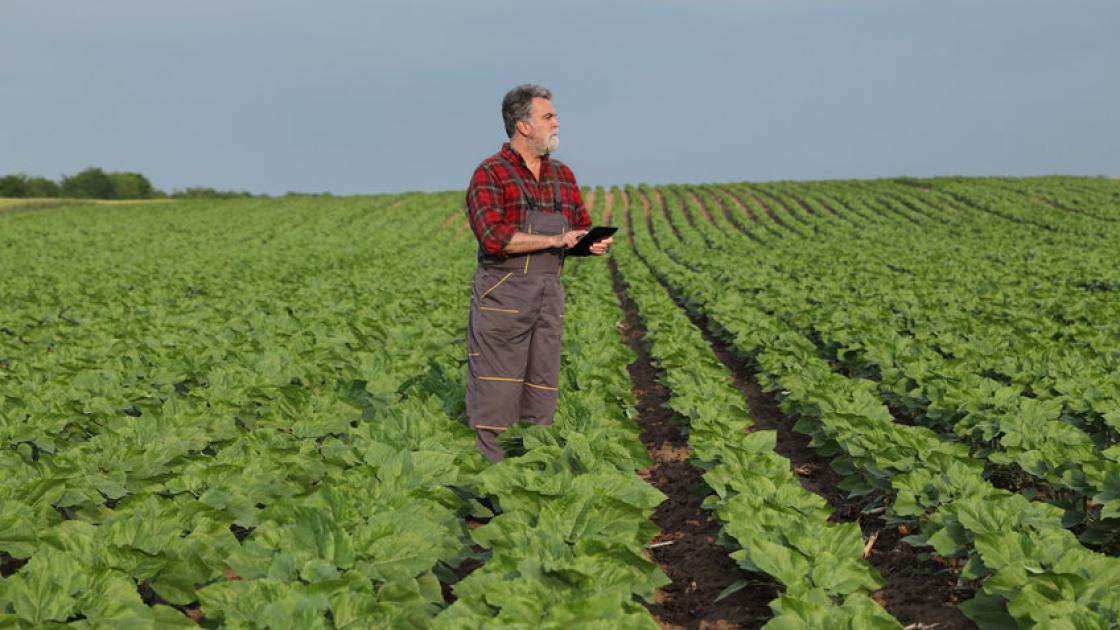
Sun-safe habits farmers need to know
Farmers spend more time in the sun compared to other people, and research suggests that they often have poor sun protection practices. Many U.S. farmers are also non-Hispanic white men—the two groups with the highest incidence of skin cancer according to the U.S. Centers for Disease Control and Prevention (CDC). For these reasons, researchers believe that farmers and agricultural workers have a higher risk of skin cancer compared to workers in other industries.
If you're a farmer – or someone who loves the outdoors – you want to be better protected from skin cancer and sun damage.
Skin cancer has early warning signs—so check yourself frequently
When UV radiation comes in contact with skin, it interacts with your skin cells and can cause DNA damage. Eventually, this DNA damage can cause mutations that turn into skin cancer, which is the most common form of cancer in the United States. Skin cancer types include melanoma, basal cell carcinoma and squamous cell carcinoma.
One in 5 Americans will get skin cancer at some point before their 70th birthday. And according to The Skin Cancer Foundation, every hour, two people in the United States lose their lives to skin cancer. As sobering as these statistics sound, the good news is that when detected early, skin cancer is much more survivable and treatable.
To increase your chances of early detection, regularly check your skin using a mirror. You can also ask your spouse to check the skin on areas of your body that you can't see yourself, such as your back and neck.
While doing skin checks, look for unusual or new growths, rashes, lumps or moles. Moles that deserve a follow-up with a doctor often change over time or have:
- Asymmetrical shapes
- Irregular borders
- Unusual or multiple colors, including blue, red, black, or tan
- Diameters that are larger than a pencil eraser
- Sensitivity
- Tendency to bleed
Make putting on sunscreen an easy habit
Wearing sunscreen is one of the best ways to prevent skin cancer (and also prevent wrinkles, fine lines and sunspots). When selecting a product, look for a sunscreen that has a SPF of 30 or higher and offers "broad spectrum" protection against two types of UV radiation, UVA and UVB.
Some people prefer sunscreens that don't contain chemicals like oxybenzone, because some research suggests these chemicals may be harmful to the environment or are absorbed into the bloodstream in amounts that exceed the levels required by the U.S. Food and Drug Administration (FDA) to undergo safety studies. While the potential risks of chemical sunscreens aren't thought to outweigh the benefits, alternatives do exist. One option is mineral sunscreen, which contains compounds like zinc oxide and titanium dioxide that stay on the surface of your skin and physically block UV rays from penetrating.
Once you choose your sunscreen, be sure to use it correctly. About a half hour before going outside, apply sunscreen to your face and any areas of skin that will be exposed to sunlight, including your ears, neck, arms, chest, and legs. We recommend reapplying your sunscreen every two hours, especially after getting sweaty or wet.
Make it easy to use sunscreen by keeping sunscreen with you or stashing it in frequently used farm equipment. You can also keep sunscreen in the kitchen or somewhere else that's easy to get to when you stop at home for lunch or supper.
Finally, get in the habit of applying sunscreen every day, year-round. UV radiation is invisible but can pass through clouds and reflect off snow, sand and ice.
Seek shade and use clothing for added protection
As a farmer, you might not be able to avoid being in direct sunlight between the hours of 10 a.m. and 4 p.m., which is when UV radiation is the strongest. Here's what you can do, in addition to wearing sunscreen:
- Wear a broad-brimmed hat
- Wear UV-blocking sunglasses
- Wear lightweight clothing
Are you doing what you can to prevent skin cancer?
Getting a skin cancer diagnosis is stressful. Protect yourself and your family by making sun safety a part of your daily routine. For more information and resources that can help you and your loved ones stay healthy, contact the Farm Family Resource Initiative today at 618-713-0759 .
Karen Leavitt Stallman
Ag Resource Specialist



